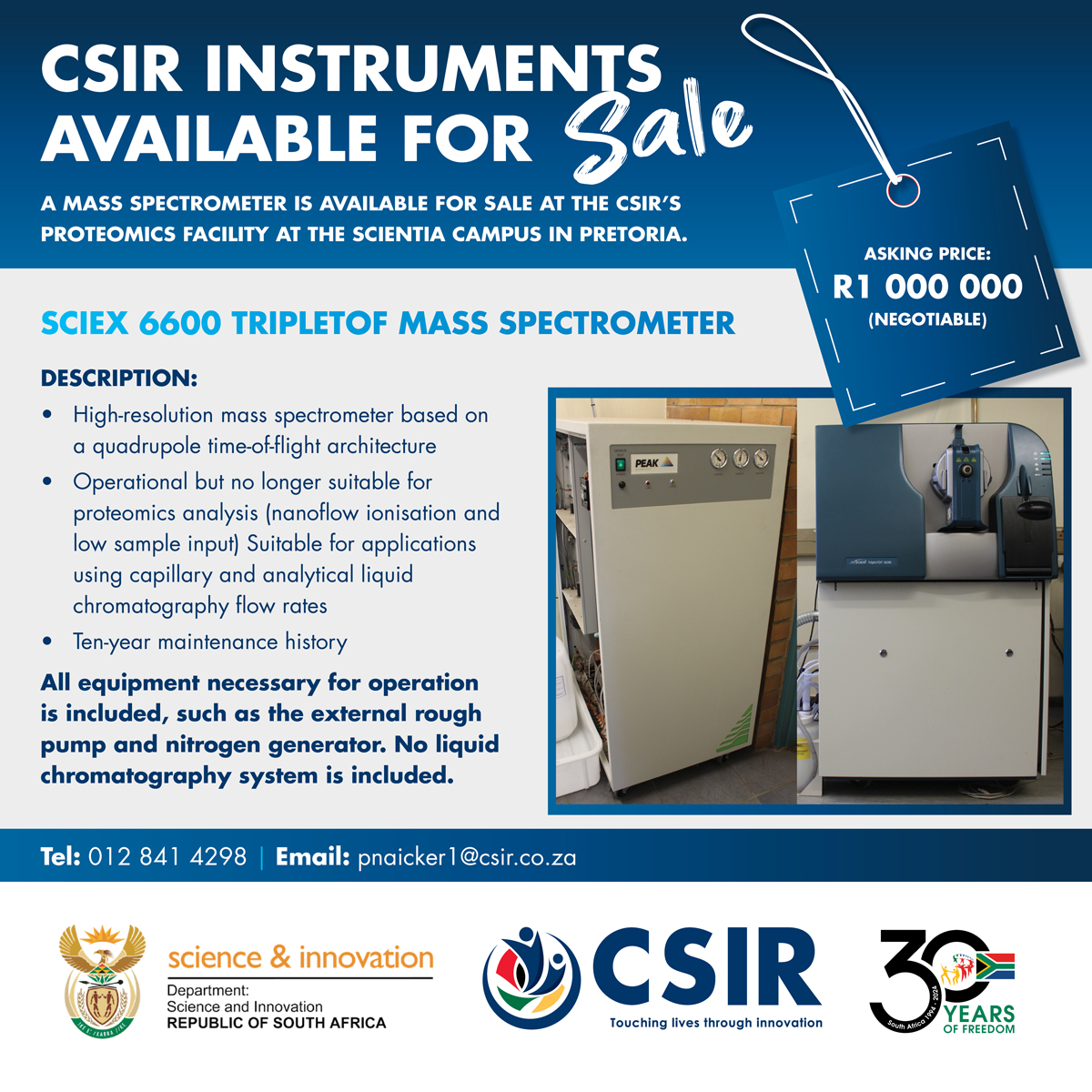Advanced Search
Search Results
The CSIR advanced material testing laboratories conduct tests on road building materials for road engineers and researchers, road owners, construction groups and consultants.
The CSIR, with its rich multidisciplinary science, engineering and technology base – in climate change, environmental sciences, energy, water, building science, spatial planning and cleaner production.
The CSIR has supported 23 SMMEs with the development of high-quality, regulatory-compliant, safe, efficacious and affordable cannabis products for local and international markets.
CSIR will be hosting the Polymer Processing Society (PPS) Europe-Africa 2019 Regional Conference (PPS2019) in Pretoria on 18 - 21 November 2019.
The PPS meeting is a leading conference on polymer processing and it attracts internationally renowned scientists, engineers and designers in the field of polymer research and development. The goals of the society, as embodied in its constitution, are to foster scientific understanding and technical innovation in polymer processing by providing a discussion forum for the worldwide community of engineers and scientists in the field.
“Science, technology, engineering, and mathematics (STEM) inspires young people to generate new technologies and ideas that are crucial to developing sustainable solutions to real-world challenges,” said doctoral researcher Rivalani Baloyi from the Council for Scientific and Industrial Research (CSIR).
Baloyi and other researchers were engaging learners and encouraging them to take up careers in science during the 2022 National Science Week (NSW) which ran from 1 to 6 August 2022. NSW is an initiative of the Department of Science and Innovation that aims to celebrate science and its role in society.
As part of raising awareness about the scourge on cyber-related crimes, you are invited to a hybrid information session titled: “Cybercrime and South Africa: An Introspective Look” on Tuesday, 4 April 2023 virtually and at the CSIR, Pretoria campus.
The era of digitalisation has made the lives of South African citizens and businesses easier, however, it has equally led to a significant increase in cybercrimes which has put national government institutions, large corporations, small and medium sized businesses, and ordinary South Africans at risk of financial and data loss, identity theft and cyber extortion.
Joint media statement
Africa’s plans to build capacity to respond to future pandemics received a major boost as South Africa’s Council for Scientific and Industrial Research (CSIR) received an investment worth $4 458 033.00 (around R80 million) from the Bill & Melinda Gates Foundation to drive skills and health innovation.
The investment, which seeks to strengthen Africa’s biomanufacturing capability through a workforce training and skills development programme, is a significant milestone that will reduce the continent’s dependence on imported critical health products.
Joint media statement
Africa’s plans to build capacity to respond to future pandemics received a major boost as South Africa’s Council for Scientific and Industrial Research (CSIR) received an investment worth $4 458 033.00 (around R80 million) from the Bill & Melinda Gates Foundation to drive skills and health innovation.
The investment, which seeks to strengthen Africa’s biomanufacturing capability through a workforce training and skills development programme, is a significant milestone that will reduce the continent’s dependence on imported critical health products.
On Wednesday 12 March, the Council for Scientific and Industrial Research (CSIR) marked the successful completion of phase one of the Ngiyaqonda! project with the handover of mobile devices to the first pilot school. Ebuhleni Primary School received the devices during a handover event hosted at the school.
There is an increasing awareness of the literacy crisis in South African schools, most notably highlighted by a report from the 2030 Reading Panel, which revealed that approximately 80% of Grade 3 learners in South Africa cannot read for meaning in any language.


